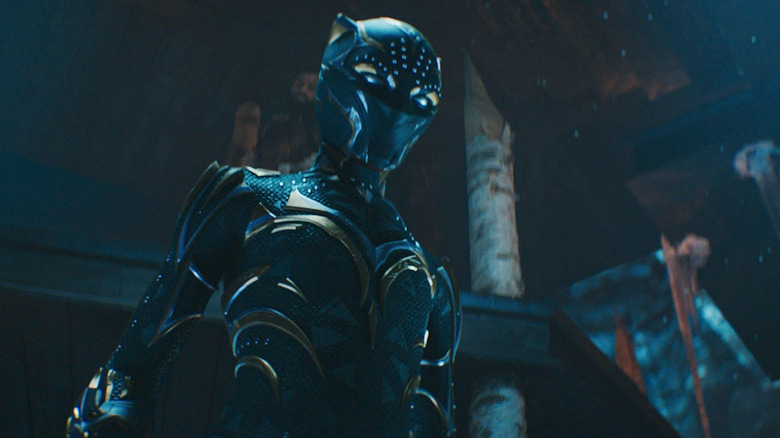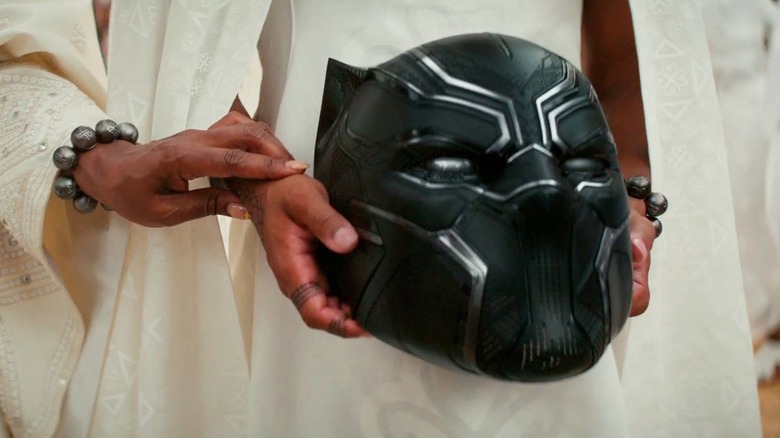Why Black Panther: Wakanda Forever Became A Female-Driven Superhero Film
There are those that cry and moan and create social media videos while sitting in the front seat of their trucks, so angry their face is red behind their wraparound Oakleys and their forehead vein pulsates wildly, any time they perceive their superhero/animated/sci-fi movies pushing a progressive agenda. This is almost always associated with women, particularly women of color, being at the forefront of a story.
It's usually best to ignore these people like they were the crazy tweaker at a party having a conversation with the houseplant, but they do a good job at being loud, so sometimes you have to address their extremely wrong takes even if you know arguing with them is a Kobayashi Maru scenario. There is no winning any rational argument with these kinds of folks because ... well, they're not rational people.
The creators of "Black Panther: Wakanda Forever" (which recently premiered to strongly positive reactions) addressed the female-fronted sequel as the natural continuation of the story they've already set up. The movie tackles Chadwick Boseman's untimely death by mirroring the real-life tragedy with the fictional character he embodied. "Wakanda Forever" is about the people closest to the character of T'Challa having to deal with the sudden loss of their friend and their king. It only tracks that the people hit hardest by his passing would be the ones he was closest to, who all happen to be women.
Fix your hearts or die
At a recent press conference attended by /Film's Bill Bria, producer Nate Moore said that was the only organic way into this story.
"We are blessed with an amazing cast who breathes life into these characters and makes you want to see what's happening with Shuri or what's happening with Okoye or what's happening with [Nakia] or what's happening with Ramonda. To not highlight them would have been a disservice to the story. So I think the movie's better for it, because if we would have had to wedge in some new male characters just to have that voice, that would have seemed sort of more performative than just telling the story we told."
Director Ryan Coogler also added that M'Baku has double the scenes that he did in the first film as well, so any complaints in that direction are even more baseless. The movie's ultimately about the grief of losing a loved one and how that can "unmoor" someone, especially close family, protectors, and partners, all of which T'Challa had surrounded himself with as a character and all of which just happened to be women.
I got the distinct feeling Moore and Coogler were being very diplomatic in their responses, trying not to kick the hornet's nest, and I can understand why that's a good approach. But let me say this for them: being angry about women getting to be in your superhero movies is a weak-ass stance and time and again we've seen that audiences don't agree with the vocal minority that rises up every time any female character or person of color gets the spotlight.
To paraphrase David Lynch, fix your hearts or die. If they can fix their hearts, they'll find a wonderful world of complicated characters and storytelling waiting for them.

